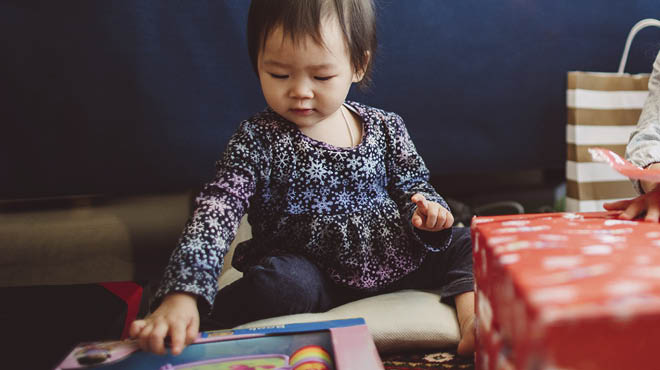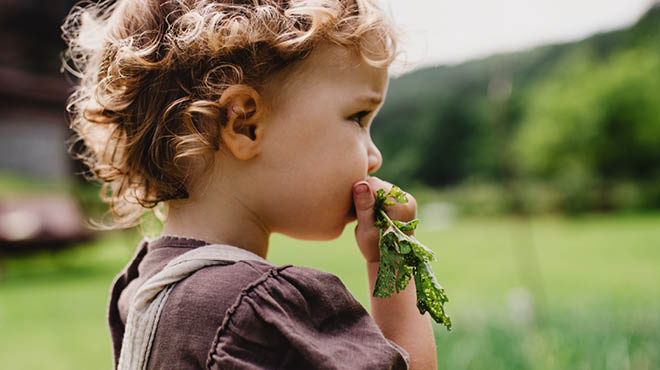Recent Posts
-
 Patient StoriesA lifesaver saved: An EMS veteran’s journey from rescue to recoveryNovember 14, 2025
Patient StoriesA lifesaver saved: An EMS veteran’s journey from rescue to recoveryNovember 14, 2025 -

-

Warming comfort for young boy with head injury

A blanket is just a piece of cloth stitched together, but it can be so much more. Especially when it is given to someone during an emergency, and provides warmth and comfort to get through a difficult time. Andrew Holmquist, 3, and his family in Glenwood City, Wisconsin, have firsthand experience.
"He's all boy and busy. Just go, go, go," says Andrew's grandmother, Judi Holmquist. "He likes 'Paw Patrol,' dinosaurs, trucks and helping papa (grandpa) outside."
Andrew, who lives with his grandparents, was doing that after a snowfall in late January.
"He really wanted to go out, so we put him in his snowsuit and his mom, Abby (Holmquist), got him strapped into the skid-steer with papa," says Judi.
After they were done plowing the driveway, Andrew's papa, Paul Holmquist, lifted him out of the skid-steer cab and set him on the ground. In an instant, Andrew slipped on ice and hit his head on the equipment's metal bucket. Paul scooped up the boy and brought him into the house to be cleaned up and comforted by Judi and Abby.
"His nose was bleeding pretty badly, and then he said, 'I'm sleepy,'" says Judi. "I'm a former paramedic, so when he said that, I looked at his pupils, and I knew something wasn't right."
Quickly, the family decided to drive him to the hospital. On the way, Judi called 911 while Abby tried to keep Andrew calm and awake in the back seat. About 15 minutes into the drive, he briefly lost consciousness. The Holmquists were met en route by an ambulance, and Andrew was transported to Mayo Clinic Health System in Menomonie, Wisconsin. When he arrived, he was evaluated by Brent Bjorklund, M.D., an emergency medicine physician.
"Andrew had dried blood in his nose and was initially vomiting blood, as well ― likely from swallowing it," says Dr. Bjorklund. "He was awake and talking to us on arrival. Then we performed a trauma evaluation."
During his exam and tests, the staff picked out a special blanket covered with trucks just for Andrew.
"He was starting to get cold and the blanket was so warm," says Judi. "It was like God was giving him a hug and protecting him."
Emergency Department staff give blankets to pediatric patients who need comfort or don't have their own blanket at home. They are handmade by Mayo Clinic Health System volunteers as part of a service project started about five years ago.
"We make about 50 blankets each year," says Karen Elwood, volunteer manager. "It is a way to provide comfort, warmth and a sense of home for our youngest patients during a scary time in their lives."
His special blanket was a great comfort to Andrew and his family when they learned that his CT scan showed fractures through the front of his skull. His fractures were linear and the bones of his skull were not displaced, but he would need additional care and monitoring.
Dr. Bjorklund consulted with Mayo Clinic Pediatric Trauma Service, which recommended Andrew be transported to the Level 1 Pediatric Trauma Center at Mayo Clinic in Rochester, Minnesota.
"As the region's only pediatric trauma center, we offer comprehensive care for infants and children who suffer from injuries. The telemedicine program allows us to connect with the local facilities, and we are able to prepare for the patient's needs upon arrival," says Denise Klinkner, M.D., medical director of Mayo Clinic's Pediatric Trauma Center. "For patients with head injuries, our Pediatric Physical Medicine and Rehabilitation team assesses patients during their stay and provides follow-up care to ensure full return to normal developmental goals."
Weather issues that day prevented a helicopter transport, so Andrew, Judi and his special blanket were brought by ambulance to the Chippewa Valley Regional Airport in Eau Claire, Wisconsin. There they met a Mayo Clinic Ambulance Service fixed-wing air ambulance airplane.
"Everyone was so kind and respectful. They made us feel very comfortable," says Judi. "The flight was uneventful, and when we landed, one of the pilots came around, and put his hand on my shoulder and wished us well. That meant a lot."
Andrew, with blanket in tow, was evaluated by Mark Mannenbach, M.D., a pediatric emergency physician, who since has retired from Mayo Clinic.
"When Andrew arrived, he looked very well. He was calm, alert and cooperative, allowing us to complete a thorough examination," says Dr. Mannenbach . "The skull fractures involved the base of his skull and put him at risk for complications, especially the development of a leak of his cerebrospinal fluid. His skull fractures would be classified as complex but not requiring any intervention."
Andrew's injuries did not require surgery, but Dr. Mannenbach and the Pediatric Trauma Service Team admitted him into the hospital, where he could be safely observed on the general pediatric floor.
During his admission, the family got another surprise: Andrew tested positive for COVID-19. While in the hospital, he received anti-seizure medication and was closely monitored by the care team. After two days, he was able to leave the hospital, but the family decided to stay a few extra days in a local hotel before making the return two-hour drive to Glenwood City.
Andrew's blanket was with him the entire way. With help from his family, he sent a thank-you letter to the Menomonie staff after he got home.
"The blanket followed me and kept me warm every step. I had to have many IVs and shots, and the blanket was my constant friend," Andrew's letter read. "Thank you so very much from me and my whole family for this blanket. Maybe when I am bigger, I can make blankets for kids like me."
The Menomonie staff and volunteers were touched by the family's gratitude and appreciate that this small gift made a difference.
"It is very touching to see how the blanket had an impact on him. He is a brave little boy with a beautiful heart," says Debra, the volunteer who made Andrew's blanket. "Even though he is young, he shared an important lesson for us all: We can find joy and appreciation in the small and unexpected comforts in our lives. We are touched and changed forever when we are kind to each other."
After a thorough washing, Andrew's blanket remains on his bed at home. Judi says that it is a constant reminder of the warmth he felt when he was scared. A few weeks after his accident, Andrew is now doing much better.
"He has had nothing less than a remarkable recovery. After his COVID-19 quarantine, he was able to go back to 3K school and loves it," says Judi. "This has been a roller coaster ride with a few bumps, but the world is really full of good people. Thankfully, we are on the good side of this now."
Andrew's physicians are pleased that he has recovered well, and they stress the importance of safety around large equipment, especially in winter conditions.
"Young children are at high risk for head injuries. They are curious and explore their surroundings wherever they may be. The family farm and work sites create even higher risks for children to be injured," says Dr. Mannenbach. "Certainly, children need to learn by exploring and learning from others as they work, but someone who is not doing any work should be on hand to make sure they are safe as they learn."
"Farm-related injuries always catch my attention, since I grew up on one in southern Minnesota," says Dr. Klinkner. "Prevention is best, as injuries can be severe in rural or remote areas that have fewer resources. We are always pleased with a positive outcome."



